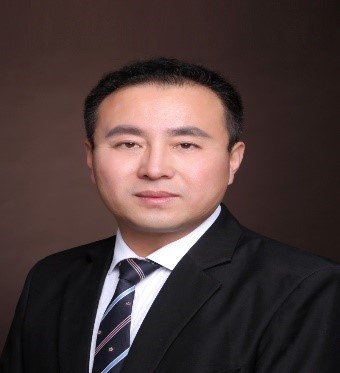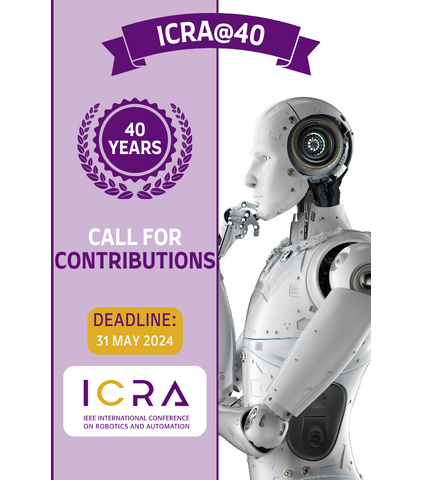Special Issue on Embracing Robotics and Intelligent Machine Systems for Smart Agricultural Applications
Agricultural production is a key economic activity providing a growing world population with resources like food, fibers, fuels, and chemical basic components. Despite a growing world population, labour participation in agricultural production is declining and technology is needed to support farmers in their work. Technologies like sensing, data, artificial intelligence, and robotics will become more and more important. This special issue addresses technological progress in robotics and intelligent machine systems for smart agricultural production.
In terms of applications, papers could address any part of the agricultural value chain including plant and animal breeding, through on-farm production, to post-harvest storage, logistics, packaging, and food processing. Besides on-farm food, feed and fibre production, off-farm production can be considered like fishery, forestry and urban landscaping and maintenance.
Smart technology will support the agricultural entrepreneur in the operational management of the farm or food processing plant through sensing, monitoring, data processing and learning, to decision support or even automatic control. This kind of technology fits into the precision farming paradigm. Robotics to replace or support human labour in challenging tasks is another key technological development, receiving much attention nowadays.
Key challenges for technologies in the agri-food domain are variation, uncertainty and occlusion. No two cows are the same, no two tomatoes are exactly the same nor do they respond in exactly a similar fashion to control inputs. Also, harvestable produce is sometimes hidden behind leaves. Applications include but are not necessarily limited to (spatial) sensing and monitoring of soil or other relevant environmental conditions, as well as sensing of the yield and disease infestation of plants and animals as well as intelligent control of these agri-food production and processing systems. Robotic systems can address for instance phenotyping, harvesting, weed control but also post-harvest food packaging and processing.
Systems may build on a synergy between robotics, artificial intelligence, machine learning, cloud computing, usability engineering, big data and Human-Computer interaction (HCI). Systems can be ground based or airborne, like UAVs. Focus could be on the algorithms involved but also on hardware design of robotic mechanisms, like platforms, manipulators and grippers. Connectivity is yet another topic of interest addressing smart farming in the framework of the Internet of Things.
Last but not least, in spite of so much ongoing technological research, certain technological and economic barriers still exist in terms of the adoption and marketability of the concept of smart farming. Future research can focus on these limitations and revolutionise agri-food production. Hence, this special issue aims to address various ideas, models, and methods of embracing robotics and intelligent machine systems for smart agricultural applications.
Topics of interest include, but are not limited to:
- Demonstration of sustainable farming using robotics and intelligent machine systems.
- Smart mechanical designs of platforms, manipulators, (soft) grippers.
- Passive and active perception using remote and proximal sensing, bridging the current gap between abundant data and relevant information.
- World modelling and intelligent use of (prior) knowledge of agri-food systems in automation and robotics.
- Intelligent and innovative motion planning and control systems for UAVs, mobile platforms, manipulators or grippers dealing with variation and occlusion.
- Novel architectures to enable a holistic approach towards sustainable and intelligent farming applications.
- Design and development of task-based robots for intelligent farming systems.
- Methods to improve the scalability of innovative farming technologies.
Important Dates
- February 20, 2023 - Submission deadline
- May 1, 2023 - First decision to authors
- June 15, 2023 - Revised paper
- August 25, 2023 - Final acceptance decision
- September 5, 2023 - Final manuscripts
- September 15, 2023 - Guest Editorial Due
- December 2023 - Publication
Guest Editors

Carlos Enrique Montenegro Marin
District University Francisco José de Caldas,
Bogotá, Colombia
cemontenegrom@udistrital.edu.co

Eldert van Henten
Wageningen University
Wageningen, Netherlands
eldert.vanhenten@wur.nl

Marija Popović
University of Bonn
Germany
mpopovic@uni-bonn.de

Stavros Vougioukas
University of California, Davis
Davis, CA, USA
svougioukas@ucdavis.edu

J. Alfred Daniel
karpagam Academy of Higher Education
Coimbatore, India
alfreddaniel.j@ieee.org

Guangjie Han
Hohai University, Nanjing, China
hanguangjie@gmail.com







